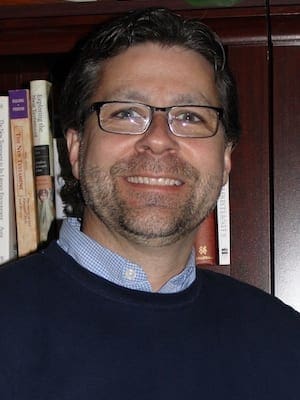As the 113th Congress was being sworn in, media were covering not only the many problems this legislative body will face in the coming days, but also the new religious diversity that sets this Congress apart from others.
While the percentage of those legislators from various religions other than Protestant and Catholic Christianity and Judaism still fall below the percentage of adherents to those minority faiths in the general population, the religious diversity of this new Congress reflects the value of religious freedom that America claims to honor.
One no longer needs to be of a particular religious persuasion, or any religious persuasion for that matter, to be elected to Congress.
Such diversity, even though still small, offers a great opportunity to people of all faiths or no faith at all to become more knowledgeable about the different religions that exist in our world.
While many people claim to be very religious, a report from the Pew Forum on Religion and Public Life suggests that many Americans are vastly illiterate when it comes to knowing about their own religion as well as the religion of others.
Only in the recent past, however, have we come to grips with the reality that religion is a major factor in world affairs. Now that we are acknowledging this reality, how are we to respond?
First, we should respond by increasing our literacy about our own faith tradition as well as the religion of others. Churches need to take seriously the old-school idea of religious education.
We have reduced such times of education to teaching about spirituality and personal relationships with God, which surely have their place.
But we are failing to teach Christian theology and practice with any depth except when it relates to personal spirituality.
Basic biblical and theological knowledge is a must for maintaining the Christian tradition, and specific church traditions ought to be educating the faithful about their beliefs, traditions and practices.
Moreover, gaining a basic knowledge of other world religions can help us make some sense of world events and history.
Such education about other religions will also avoid stereotypes and untruths about other religions that can only lead to a dehumanizing of adherents of that religion.
While some churches offer classes about world religions, these often only serve as a pretext for evangelism, and time is usually spent finding problems within a particular religion in order to win an apologetic argument with an adherent of that religion.
We need to see the intrinsic value of learning about other religions for the purpose of being better informed world citizens.
Second, we need to gain an appreciation of the “truth value” of all religions. All the great world religions search for ultimate reality and for how we are to live as humans.
Finally, through education about our own faith traditions and the religious traditions of others, we can reach a place where we can acknowledge the similarities as well as the differences between various religions.
While small groups of extremists from every religion manifest their religious beliefs through hate and violence and make outsiders think ill of those religions, every faith has a center from which it seeks the common good.
Keeping interfaith dialogue focused on the common good, while at the same time having open and honest discussions about religious differences, can help us affirm the truth and value of our own religious faith while at the same time acknowledging the truth and value of the faith of another.
At a more practical level, there are a few actions we can take to make ourselves more religiously literate, and therefore, more open to the value of other religions, and especially the people who practice them. Here are a few things we can do.
â— Take a college course on world religions.
â— Read quality books written by scholars who are practitioners of specific faiths.
â— Get involved in interfaith dialogue and work.
â— Visit places of worship.
There will always exist those who refuse to acknowledge that America is becoming more religiously diverse and many of those will refuse to see the value in such religious diversity. In fact, many work to prevent such diversity.
But the reality is that we have an opportunity not only to embrace a more religiously diverse society, but also the chance to learn from others and grow together in community as we work toward the common good.
Drew Smith, an ordained Baptist minister, is director of international programs at Henderson State University in Arkadelphia, Ark. A version of this column first appeared on his blog, Wilderness Preacher, and is used with permission.
Assistant Director of the Honors College at Henderson State University in Arkadelphia, Arkansas.

